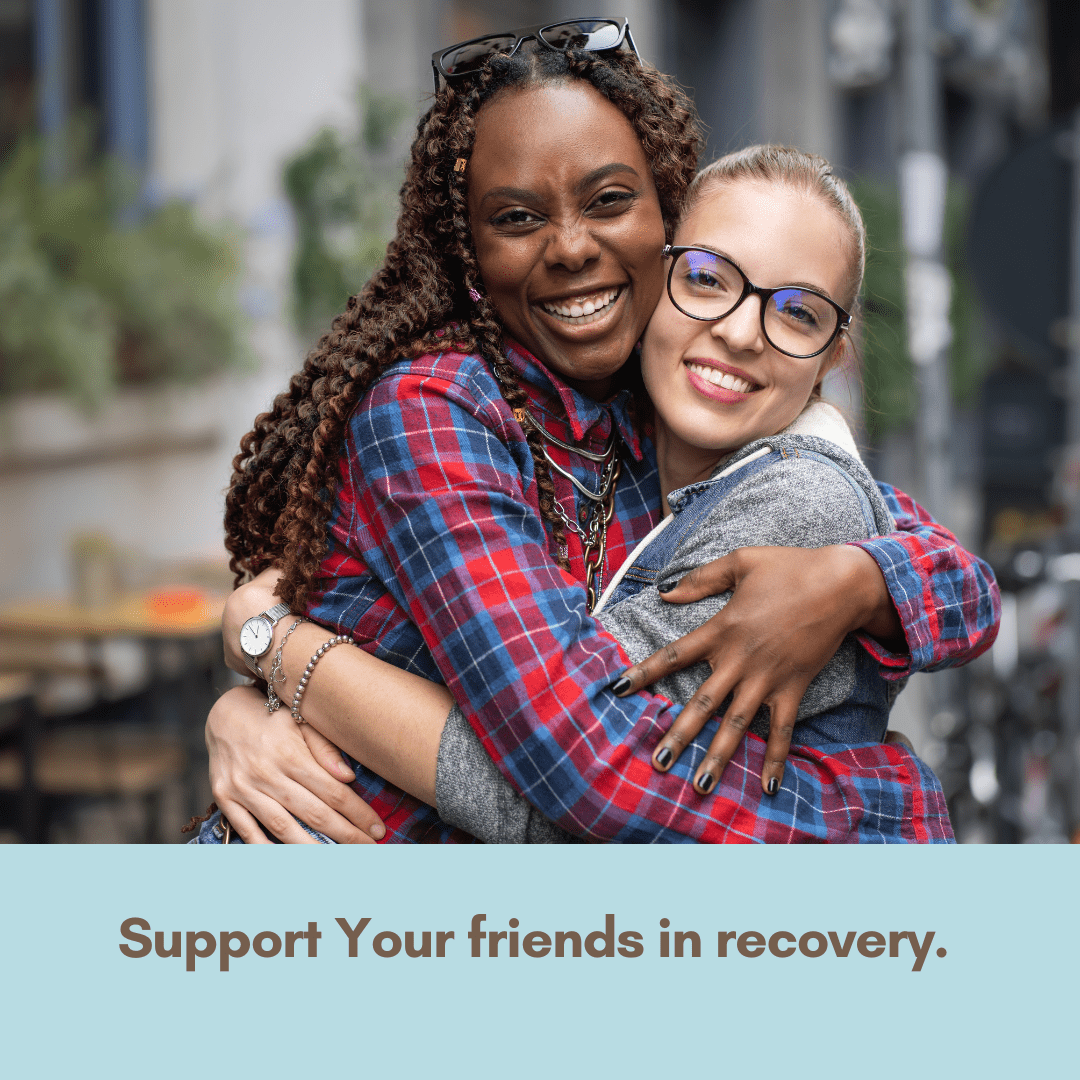A Friend Can Support an Addict in Recovery
By Sonya Schweitzer
The stigma surrounding addiction can pose a barrier to recovery, discouraging those with addictions from seeking help. Often, the individual has feelings of shame or guilt. Overcoming addiction also requires changing habits, environments, and sometimes relationships. Change often leads to a sense of isolation and disconnection.
In this environment, the stead-fast support of a friend becomes vital. In this blog, we explore ways that a friend can support an addict in recovery.
How To Be The Supportive Friend
First, it is essential to understand that addiction is a chronic disease. It is not a moral failing or a lack of willpower. Your friend cannot overcome addiction by simply deciding to stop the addictive behavior today. Overcoming addiction involves dealing with physical, psychological, and emotional issues. Recovery takes time and may even be a lifetime process.
When supporting your friend, remember this quote:
Your friend is not their illness—Safe Project.
There are steps that you can take today to support your friend. Below are five ways that a friend can support an addict in recovery.
5 Ways to Provide Support Today
Suppose you have a friend participating in an addiction recovery program or just returning home from an in-house program. In that case, you may be wondering how to support their recovery. Here are five ways to help them today and into the future.
- Provide Emotional Support: Dealing with addiction is challenging and emotionally draining. Be there and listen to your friend when they need to talk. Keep all communications positive and encouraging. Positive communication includes conversation and digital messages. Positive communication can motivate them to continue on their journey to recovery.
- Avoid Enabling: Friends must avoid behaviors that enable an addicted friend to continue their substance abuse. Friends can enjoy each other’s company without alcohol or drugs. Also, remember that making excuses for their behavior is also a form of enabling an addiction.
- Encourage Healthy Lifestyle Choices: Often, a friend is the perfect person to encourage and participate in healthy activities. Consider starting a new hobby together or participating in activities such as exercise. A healthy, active lifestyle can help reduce cravings. You can support them in building a new routine not involving substance abuse.
- Learn About Addiction: One of the best ways to offer support is to learn about the disease of addiction. Knowledge about addiction can help you to support your friend better and manage your reactions to their addiction. Understanding that addiction is a disease is vital to offering support.
- Have Patience: The journey to recovery is a process that takes time and is filled with challenges. At Samaritan Inns, the process is divided into three phases, and each phase may take months to fulfill. Recovery often involves setbacks and relapses. Patience and ongoing support are crucial.
 Set Boundaries During Recovery
Set Boundaries During Recovery
A friend can play an important role in addiction recovery. But, while it is essential to provide support, it is equally important to take care of your well-being. Setting boundaries is an additional way a friend can support an addict in recovery.
Be clear about your boundaries and the support that you can provide. Encourage your friend to also rely on their complete support system. Limitations include depending on the addiction recovery professionals and their addiction support group.
Remember, you are not a professionally trained recovery specialist. You are a friend on standby to offer support during the journey.
The Road to Recovery Has Setbacks
The long journey to recovery often has setbacks, but recovery is possible. As a friend, be prepared for a possible relapse. Relapse is a common part of the recovery process. It does not mean that your friend or treatment has failed.
Think of relapse as an opportunity to adjust the treatment plan. Of course, adjustments to any treatment plan should be under the supervision of a trained professional. With your friend’s consent, it may be time to ask their recovery counselor if you should also adjust your approach to support.
Recovery from addiction is a long journey, and there may be setbacks along the way, but a friend can support an addict in recovery. Keep showing your support, even when things get tough. If you are unsure of what to do in any situation, don’t hesitate to contact recovery professionals for guidance.
Recovery at Samaritan Inns
If you, or a friend, are local to Washington, DC, and need addiction recovery assistance, contact Samaritan Inns. You can find information about our 3-Phase Program on our website. Samaritan Inns has provided support and a successful addiction program in Washington, DC, for over thirty years. How can we help you today?
Share on Social
Recent Posts
Donate Today
Make a donation to help us sustain our mission and provide help
to those who need it in the Washington, DC area.

 Set Boundaries During Recovery
Set Boundaries During Recovery